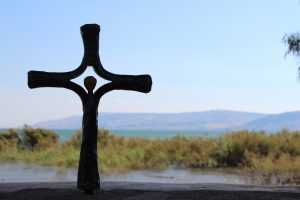
20 Christian Pilgrimage Sites in Israel: The Guidebook
Israel, often called the birthplace of Christianity, is a land steeped in history, holding deep significance for believers. Christian pilgrimage sites abound in this small
When planning a trip to Israel, one thing to have in mind is weather in Israel. Depending on the season, the weather in Israel can reach both ends of extreme. Additionally, planning a trip to Israel will usually include visits to religious sites so here is what to wear in Israel when visiting religious sites and for what to pack for the weather.
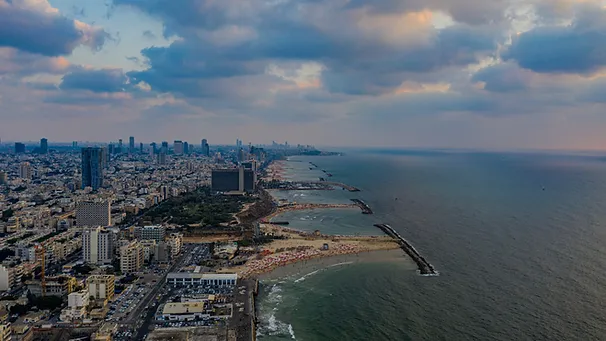
Although Israel is a very small country, the climate is very different in the north and south of Israel. January, February and March are the coldest months in the year in Israel. In the more southern regions of Israel, like Jerusalem, these winter months can be bitterly cold and it can reach temperatures of 0 degrees Celsius, especially in the nighttime. These months are also the rainy months, and you will find Israelis to be full of excitement when it’s raining as it only rains maximum 3 months out of the year. Taking into consideration the coldest and wettest it can get, bear in mind the sun in Israel is very strong and even in the winter, being in the sun for long enough can warm you right up and your feather down coat will be much too heavy and warm when exploring on those sunny days.
In the central regions of Israel, like Tel Aviv, it doesn’t get as cold as it does in Jerusalem. Even on the coldest days of the year, it is significantly warmer in Tel Aviv. A very big and warm winter coat will not be necessary in Tel Aviv even in January, February and March. The weather in Israel is also not consistent. It might be freezing one day, and very warm the next. There could be thunderstorms and two hours later the sun can be out.
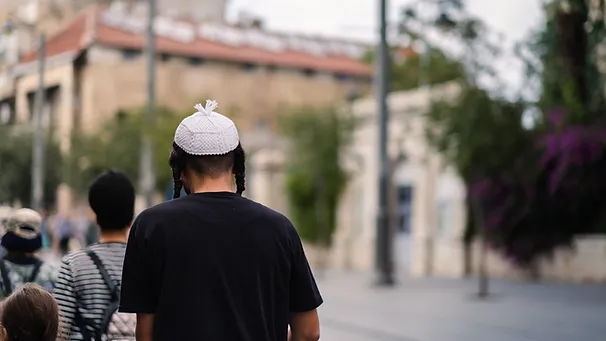
The best things to pack for the weather in Israel in the winter months are layers. Layers are your best friend in Israel. Ditch the very warm winter coat and opt for thick sweaters, warm jeans and fluffy scarves. A waterproof light winter jacket/ coat will be the most useful especially if you plan to travel throughout Israel in these months. A good pair of waterproof boots will also come in handy, especially if you plan on exploring places like Masada, the Golan Heights and even the Old City of Jerusalem.
Additionally, because of the lower rates of rainfall in Israel, the small country is not so equipped to deal with the rain. When visiting in the winter months, expect traffic that is disproportionate to the weather and minor flooding on the sidewalks and streets. When visiting Jerusalem during the rain, take extra caution as Jerusalem stone gets dangerously slippery when wet, and if you plan on visiting the Old City of Jerusalem take extra care and time to avoid slipping and injury.
The summer months in Israel are very lovely. If you are sensitive to the heat and sun, plan your trip to avoid the hottest months in Israel which are June, July and August. The sun in Israel is notoriously strong so when visiting in April through September, ensure you are bringing adequate sun protection, including hats, light clothing that cover your shoulders, and sunburn protection. Bring your lightest summer clothing, from shorts, dresses, open toed shoes and bathing suits. The Israeli beaches are beautiful and are a great way to spend the day during these months as there are lifeguards, paraphernalia, activities and great food on the beaches in Tel Aviv.
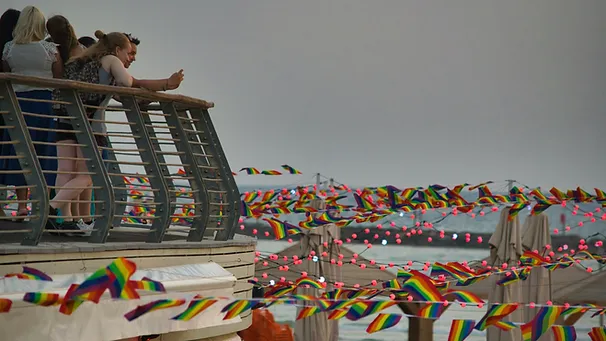
Central Israel, like Tel Aviv, can get a lot warmer than in other places like Haifa or Jerusalem and the heat doesn’t stop even after the sun goes down in Tel Aviv. When visiting Jerusalem during the summer months, the sun is just as strong as in Tel Aviv, but there is usually a nice breeze that balances the strong sun. Additionally, when the sun goes down in the Southern regions like Jerusalem, it can get chilly so a light summer sweater is a must in the evenings, especially if you know you are going to be traveling to the southern regions.
There is no rain during these months in Israel, and since it’s fairly warm throughout the country during the summer, a single sweater is more than enough to pack. When visiting during April, May, June, July or August, shorts, t-shirts, sundresses and hats are a must. Additionally, bring along a pair of open toed shoes that are comfortable enough to walk around and explore in.
The autumn season is the most mild weather to be visiting Israel in. If extreme heat or cold is not your thing, you will find yourself to be very comfortable during these months in Israel. The weather can still be warm but it is not yet cold. You will find that people are still wearing their light summer clothing during these months with just a light jacket. During these months in Israel the weather hasn’t yet reached sweater weather, so ditch your knitted fluffy sweaters for a lighter cardigan.
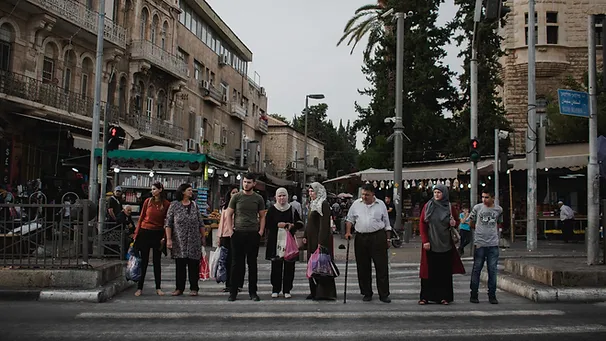
As like the other months, the central regions like Tel Aviv, will be much warmer than the southern regions like Jerusalem. When visiting Jerusalem during these months, don’t let the weather in Tel Aviv fool you regarding the weather in Jerusalem. Even though it is less than an hour drive away, your outfits for Jerusalem and Tel Aviv will be different. It is much cooler in Jerusalem than Tel Aviv during these months, and if your jacket is optional in Tel Aviv, it is most definitely necessary in Jerusalem, especially in the evenings.
When traveling to Israel in October, November, December, make sure you bring enough layers. A jacket is a must especially if you plan on traveling throughout the country, and warmer evening clothes are necessary as well. But make sure you are not bringing too much winter clothing like thick sweaters as they will not be needed or worn. Long jeans, t-shirts and jackets are the perfect attire during these months. Pack two hoodies or sweaters, with some long jeans and you will be good! It is also a great time to check the weather daily in the morning of the places you plan to visit to dress adequately as the weather of one place in Israel will not be an indicator to the weather in another.
When planning a trip to Israel, for someone who has never been, planning outfits can be confusing. To start off with, Israel is not like other countries in the Middle-East where choice of outfits should reflect the countries standards. Excluding nudity, there is no right or wrong way to dress in Israel. Dress as you would normally and you will be fine.
In regards to visiting religious sites, women will usually be asked to cover shoulders and avoid wearing shorts, and occasionally men will be required to wear longer pants. The best thing to do, is dress how you would normally dress, and in your purse or backpack, bring along two or three light scarves to be able to cover up to match the dress requirements of the place you will be visiting.
If you don’t have a full day trip planned, bringing the scarves along wherever you go is smart as you won’t have to avoid places because of what you are wearing and provides you with the ability to travel and explore without planning. The Old City of Jerusalem and Bethlehem has many religious sites that will have a dress code whereas places like Haifa, Tel Aviv and the rest of Jerusalem where there won’t be a place with a dress code.
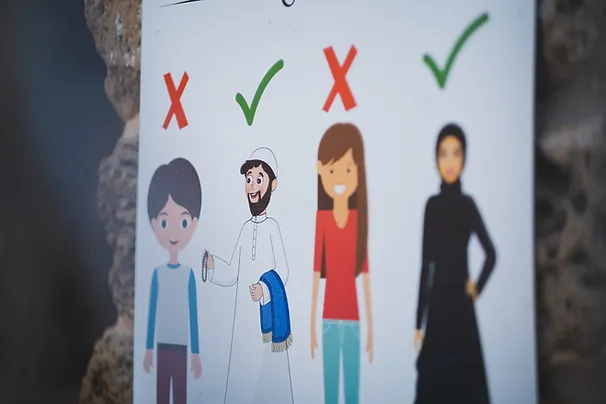
What to pack for Israel should be appropriate for the weather, and the only difference is to bring a few light weight scarves to be able to use for the few religious sites you may wish to visit. Book your one day experience in Jerusalem today by clicking here.


Israel, often called the birthplace of Christianity, is a land steeped in history, holding deep significance for believers. Christian pilgrimage sites abound in this small

In the heart of the Middle East lies Jerusalem, a city steeped in history, culture, and religious significance. Positioned at the crossroads of civilizations, Jerusalem

Jerusalem, a city that never sleeps, transforms into a captivating wonderland after dark. From exploring the enchanting Old City streets to indulging in local ice

Welcome to a week-long adventure in Israel! Discover what to do in Israel for a week and immerse yourself in its rich history and diverse
